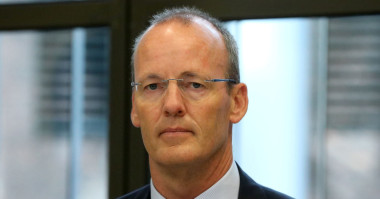Slower wage growth needed for euro zone rate cuts, ECB's Knot says
The European Central Bank (ECB) will need to see proof of slowing wage growth in the euro zone before interest rates can be lowered, ECB governing council member Klaas Knot said on Sunday.
“We now have a credible prospect that inflation will return to 2% in 2025. The only piece that’s missing is the conviction that wage growth will adapt to that lower inflation”, the Dutch central bank governor said in an interview with Dutch TV program Buitenhof.
“As soon as that piece of the puzzle falls in place, we will be able to lower interest rates a bit.”
